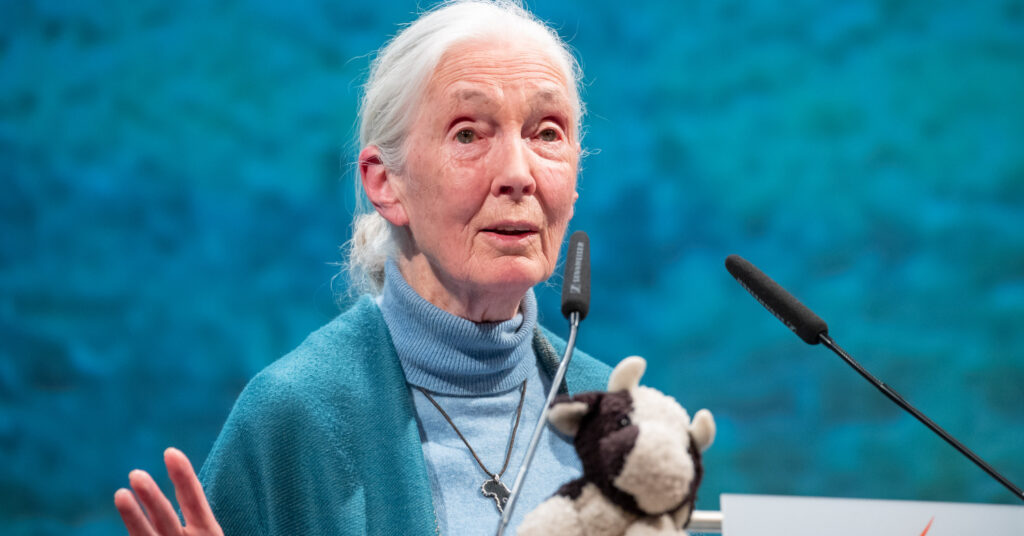World-renowned primatologist Jane Goodall said that “disrespect for animals” caused the coronavirus (COVID-19) outbreak. She also emphasized that “everyone can make an impact every single day.”
The 86-year-old environmentalist—best known for her study of wild chimpanzees in Tanzania starting in the late 1950s—recently spoke on a conference call ahead of National Geographic’s upcoming documentary “Jane Goodall: The Hope,” reports Agence France-Presse.
“It is our disregard for nature and our disrespect of the animals we should share the planet with that has caused this pandemic,” said Goodall. “That was predicted long ago.”
She specifically highlighted the combined impact of environmental destruction, hunting, wild animal meat markets, and factory farming as key factors in the spread of zoonotic diseases such as coronavirus.
Goodall said: “These are the conditions that create an opportunity for the viruses to jump from animals across the species barrier to humans.”

Ethical Consumption
Goodall encouraged people to think about the consequences of small daily choices, in particular, what we choose to eat and where it comes from. Goodall herself is an ethical vegetarian.
“Did it cause cruelty to animals? is it made from intensive farming?” Goodall asks. “Is it cheap because of child slave labor? did it harm the environment in its production? where did it come from? how many miles did it travel?”
“We have to realize we are part of the natural world,” said Goodall. “We depend on it, and as we destroy it we are actually stealing the future from our children.”
Goodall also highlighted the role of privilege in lifestyle, pointing out that means can often restrict the making of “ethical” consumer choices. She also related this to bushmeat, recently banned in Malawi for its potential role in spreading zoonotic diseases like coronavirus.
While bans could help prevent further pandemics, they will impact those who rely on wild animal meat for their livelihoods, says Goodall.
“You can’t just stop somebody doing something when they have absolutely no money to support themselves or their families,” she explained. “But at least this pandemic should have taught us the kind of things to do to prevent another one.”
“What we can do in our individual lives does depend a little bit on who we are,” continued Goodall. “But we all can make a difference, everybody can.”


